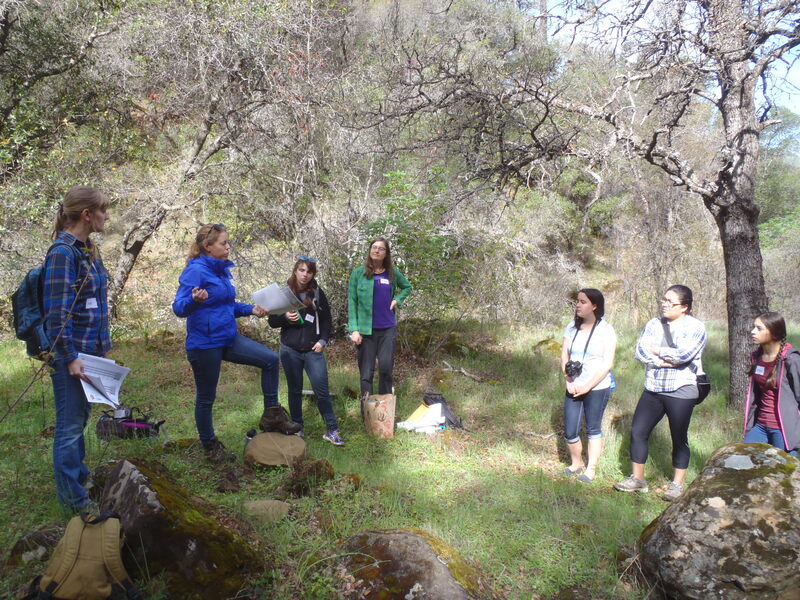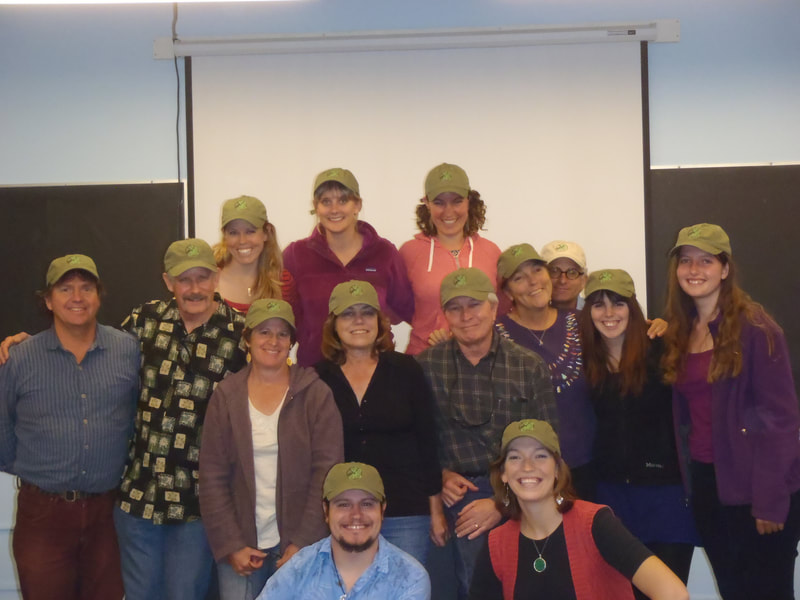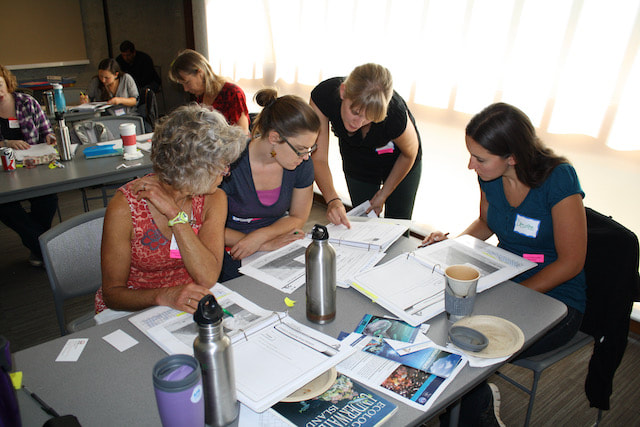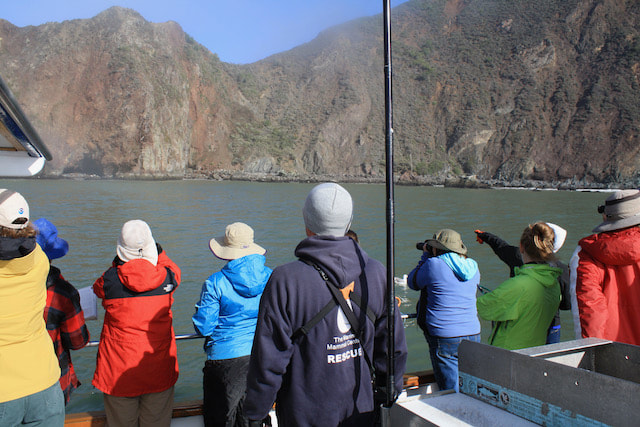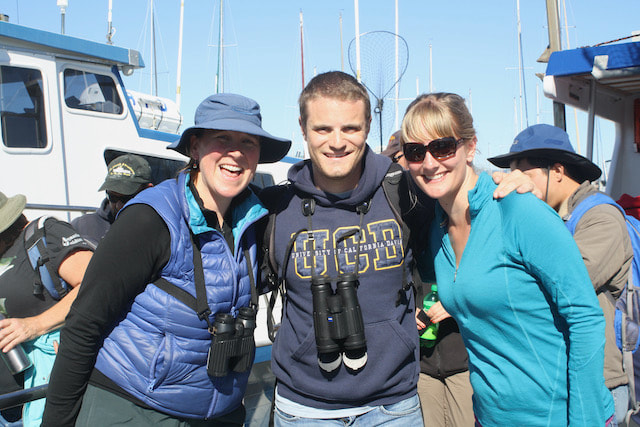Teaching
Career Discovery Group (CDG)
A team of graduate students, faculty, and staff from the UC Davis Internship and Career Center work together to offer this unique course. The main goals of the Career Discovery Group are to ease the transition of first-year students to UC Davis, help them access resources to enhance their success at a large research institution, and guide them through self and career exploration. We accomplish this through a 3-part, year-long course that includes lectures, weekly group discussion sections, professional networking events for students, workshops to develop job application materials, and field trips to observe professionals on the job.
As a graduate student instructor for CDG, I have mentored over 100 students. I have worked with three cohorts of freshman students who were interested in animal and wildlife sciences. I have also led two cohorts of transfer students through an expedited one-quarter version of the course that is specifically designed for students who only have a few years to take advantage of everything a large research university has to offer. As part of this program, I participated in weekly professional development to build strong teaching and mentoring skills. I also collaborated with other members of the teaching staff to develop the curriculum, lesson plans, assignments, and in-class activities.
As a graduate student instructor for CDG, I have mentored over 100 students. I have worked with three cohorts of freshman students who were interested in animal and wildlife sciences. I have also led two cohorts of transfer students through an expedited one-quarter version of the course that is specifically designed for students who only have a few years to take advantage of everything a large research university has to offer. As part of this program, I participated in weekly professional development to build strong teaching and mentoring skills. I also collaborated with other members of the teaching staff to develop the curriculum, lesson plans, assignments, and in-class activities.
Introductory Biology
I have worked many times over the course of my PhD as a teaching assistant and graduate student instructor in the introductory biology series (BIS series). The classes I have taught include:
BIS2A Introduction to Biology: Essentials of Life on Earth
As a teaching assistant for BIS2A, I led three discussion sections per week, guiding students in written, oral, and hands-on activities that focused on topics such as the essentials of life, basic cell biology, genetics, and introductory biochemistry. My other responsibilities included grading homework assignments, supporting student learning through office hours and review sessions, and proctoring exams.
BIS2B Introduction to Biology: Principles of Ecology and Evolution
As a teaching assistant for BIS2B, I taught two laboratory sections per week, leading students in experiments and data analysis to improve their understanding of basic ecological and evolutionary biology concepts. I was also responsible for grading lab reports, holding office hours and review sessions, and proctoring exams.
BIS098 Introduction to Biology: Directed Group Study
For two quarters, I worked as a graduate student instructor for a co-course that ran in parallel with BIS2A. This class was offered to students from under-represented groups who were identified as at-risk for failing the introductory biology series. The course focused on developing the study skills, time management practices, and test-taking strategies of the students. I also led students in learning activities to solidify their understanding of challenging biological concepts. I worked with the BIS series staff to develop the curriculum. In the classroom, I created a welcoming, supportive, and interactive environment.
BIS2A Introduction to Biology: Essentials of Life on Earth
As a teaching assistant for BIS2A, I led three discussion sections per week, guiding students in written, oral, and hands-on activities that focused on topics such as the essentials of life, basic cell biology, genetics, and introductory biochemistry. My other responsibilities included grading homework assignments, supporting student learning through office hours and review sessions, and proctoring exams.
BIS2B Introduction to Biology: Principles of Ecology and Evolution
As a teaching assistant for BIS2B, I taught two laboratory sections per week, leading students in experiments and data analysis to improve their understanding of basic ecological and evolutionary biology concepts. I was also responsible for grading lab reports, holding office hours and review sessions, and proctoring exams.
BIS098 Introduction to Biology: Directed Group Study
For two quarters, I worked as a graduate student instructor for a co-course that ran in parallel with BIS2A. This class was offered to students from under-represented groups who were identified as at-risk for failing the introductory biology series. The course focused on developing the study skills, time management practices, and test-taking strategies of the students. I also led students in learning activities to solidify their understanding of challenging biological concepts. I worked with the BIS series staff to develop the curriculum. In the classroom, I created a welcoming, supportive, and interactive environment.
Outreach
California Phenology Project at Stebbins Cold Canyon Reserve
I am a founding member of a graduate-student developed community science project at Stebbin's Cold Canyon Reserve. Volunteers monitor the phenology of California native plants and contribute this data to the National Phenology Network. I worked to develop the site, designed volunteer training materials, and led training and volunteer appreciation events. Sadly, monitoring efforts on this project have been halted due to multiple fires at the Reserve.
Winged Ambassadors
Winged Ambassadors: Ocean Literacy through the Eyes of Albatross is a series of marine science lesson plans developed by Oikonos and Cordell Bank National Marine Sanctuary for 6-12th grade teachers. I helped lead two multi-day workshops to train science teachers how to implement these lessons in their classrooms. One of these workshops also included a field trip to the Farallon Islands off the coast of San Francisco for teachers to observe albatross (and other marine life) in person.

